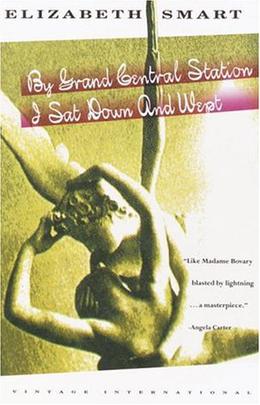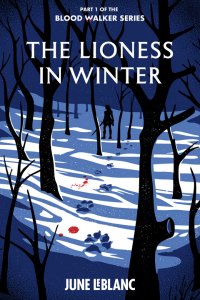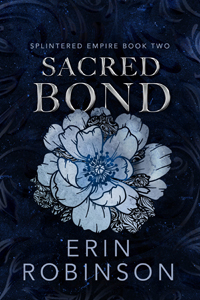By Grand Central Station I Sat Down and Wept
Elizabeth Smart

In her preface to the 1966 reissue of the book, Brigid Brophy describes it as one of the half dozen masterpieces of poetic prose in the world. It details the author's passionate affair with the British poet George Barker and might be characterised as a hymn to love and its supremacy above all other emotions and worldly practicalities.
In an essay for Open Letters Monthly, Ingrid Norton called the novel "a howl of a book, shot through with vivid imagery and ecstatic language, alternately exasperating and invigorating," noting the range of responses to it:
Waves of disapproval and approbation have trailed By Grand Central Station I Sat Down and Wept since its initial publication. Depending on whose opinion one trusts, the novel is either “a violent and adroit piece of home-wrecking” (Cyril Connolly, 1945) or “like saying a tragic, pagan erotic rosary” (Brigid Brophy, 1966). The novel is wildly praised as a work of linguistic inventiveness and beauty, but beyond that, responses often divide based on the love affair itself. Allies of Elizabeth Smart’s romantic vision include Yann Martel, Michael Ondaatje, and ex Smiths-frontman Morrissey. Others express reservations. When the book was reissued in the late 1960s, novelist Angela Carter praised the novel in a Guardian review as “like Madame Bovary blasted by lighting” but later wrote privately to her friend, critic Lorna Sage, that one of her motivations for founding the feminist press Virago was “the desire that no daughter of mine should ever be in a position to be able to write BY GRAND CENTRAL STATION I SAT DOWN AND WEPT[sic], exquisite prose though it might contain. (BY GRAND CENTRAL STATION I TORE OFF HIS BALLS would be more like it, I should hope.)”
The novel's title is a foretaste of Smart's poetic techniques: it uses metre (it's largely anapaestic), contains words denoting exalted or intensified states (grandeur, centrality, weeping), and alludes to a canonical work (Psalm 137) with metaphorical import for the novel's subject matter. The book has gained a cult following, and has been referenced many times by the British singer Morrissey. Additionally, the poem was adapted for the screen by Laura Lamson though the film did not come to fruition.
Above description taken from Wikipedia last updated 21 February 2011 at 18:05.


